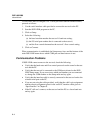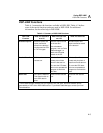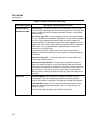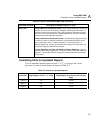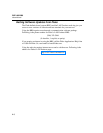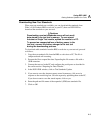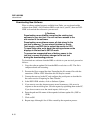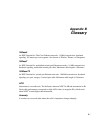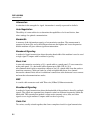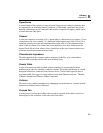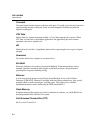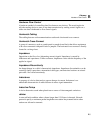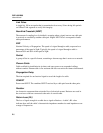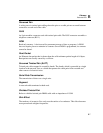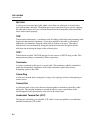
DSP-100/2000
Users Manual
B-2
Attenuation
A reduction in the strength of a signal. Attenuation is usually expressed in decibels.
Auto-Negotiation
The ability of a network device to determine the capabilities of a far end device, then
select settings for optimal communication.
Bandwidth
A measure of the information capacity of a transmission medium. The measurement is
expressed in hertz (Hz) and is the difference between the highest and lowest frequencies
that the medium will pass without significant attenuation.
Baseband Signaling
A method of signal transmission where the entire bandwidth of the medium is used to send
a single signal. Compare with broadband signaling.
Basic Link
A network connection consisting of (1) a patch cable to a patch panel, (2) one connection
at the patch panel, (3) a horizontal cable segment up to 90m (295 ft), (4) a
telecommunications outlet or transition connector, and (5) a patch cable from the outlet or
transition connector. Cable test limits for a link are tighter than those for a channel
because the channel limits allow for additional connections at the horizontal cross-connect
and near the telecommunications outlet.
BNC
A coaxial cable connector used with Thin-wire (10Base2) Ethernet networks.
Broadband Signaling
A method of signal transmission where the bandwidth of the medium is shared by multiple
signals. The signals are separated into channels carried on different frequencies within the
bandwidth. This transmission method is often used to transmit voice, data, and video
signals over a single medium. Compare with baseband signaling.
Cable Pair
Two wires, usually twisted together, that form a complete circuit for signal transmission.



